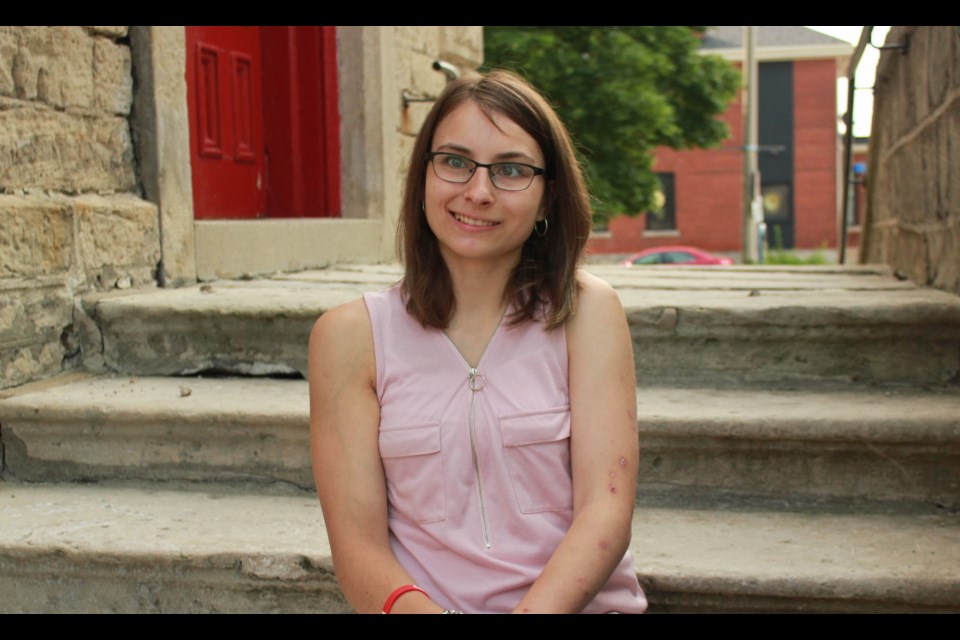An 18-year old brain tumour stroke survivor from Guelph is looking to change society’s views on disabilities.
Amanda McQuinn started a motivational Youtube channel and blog that has been growing for the past three years to primarily teach people how to communicate with those who have special needs.
“I've faced discrimination. You are being treated differently. The other kids, you know, that I went to school with, didn't always treat me fairly,” says McQuinn.
McQuinn says the prejudice she felt motivated her to speak about her experiences so other kids feeing such discrimination can find comfort by feeling a sense of community.
She says she always struggled with feeling a sense of belonging in society and while she still has physical challenges today, she says it doesn't make her any less of a human being.
“We as a community are getting better on it. But in the olden days, people with disabilities were treated unfairly. So I'm just trying to show and teach people that,” says McQuinn.
McQuinn says she was a happy healthy baby who would struggle holding her head up as an infant. At the age of three, her parents took her for CAT scan and the doctor diagnosed her with a brain tumour and told her parents she required surgery.
McQuinn’s brain tumour was successfully removed during surgery at Sick Kids Hospital but a hemorrhagic stroke on the right side of her brain left her with a weakness on the left side of her body. It also left her feeling like society just treated her differently and sometimes, even unfairly.
McQuinn’s videos talk about specific issues individuals with disabilities face that may result in them being treated differently.
For example, she particularly talks about the ethics of treating someone on a wheelchair such as not cutting in front of them because they might feel disrespected or not touching someone’s wheelchair because it is seen as an extension of their body
“What I have always been taught is that the wheelchair is a part of the person's body. So you should always ask before you touch it or anything like that,” says McQuinn.
Personally, she says there were times when she felt that society wanted to change her. She recalls a time when asked her parents if the reason they took her to physiotherapy was because they wanted to change her and they reassured her that wasn't the case, and that they just want the best for her.
McQuinn says she understands the thought processes of an individual who struggles with a disability and feels neglected by society.
“I'm trying to change the way people think and look up to disabilities,” says McQuinn.
Currently a student at the Centennial high school, McQuinn hopes to pursue a business career while motivating people on the way.
She has not allowed her physical challenges to get in the way of her interests and has been an active cheerleader for the past seven years with the Sand Sharks cheerleading team.
“I would love to be an advocate for people with disabilities but more importantly, I want to be an advocate for the younger generation and be a role model,” says McQuinn.
